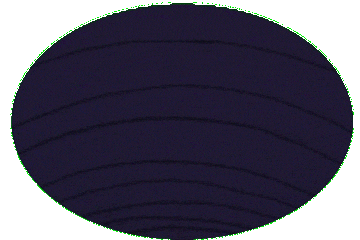George F. Handel
George Frideric (or Frederick) Handel ( HAN-dəl; baptised Georg Fried[e]rich Händel, German: [ˈɡeːɔʁk ˈfʁiːdʁɪç ˈhɛndl̩] ; 23 February 1685 – 14 April 1759) was a German-British Baroque composer well-known for his operas, oratorios, anthems, concerti grossi, and organ concerti. Born in Halle, Handel spent his early life in Hamburg and Italy before settling in London in 1712, where he spent the bulk of his career and became a naturalised British subject in 1727. He was strongly influenced both by the middle-German polyphonic choral tradition and by composers of the Italian Baroque. In turn, Handel's music forms one of the peaks of the "high baroque" style, bringing Italian opera to its highest development, creating the genres of English oratorio and organ concerto, and introducing a new style into English church music. He is consistently recognised as one of the greatest composers of his age. Handel started three commercial opera companies to supply the English nobility with Italian opera. In 1737 he had a physical breakdown, changed direction creatively, addressed the middle class and made a transition to English choral works. After his success with Messiah (1742), he never composed an Italian opera again. His orchestral Water Music and Music for the Royal Fireworks remain steadfastly popular. One of his four coronation anthems, Zadok the Priest, has been performed at every British coronation since 1727. He died a respected and rich man in 1759, aged 74, and was given a state funeral at Westminster Abbey. Interest in Handel's music has grown since the mid-20th century. The musicologist Winton Dean wrote that "Handel was not only a great composer; he was a dramatic genius of the first order." His music was admired by Classical-era composers, especially Haydn, Mozart and Beethoven.
This article uses material from the Wikipedia article "George Frideric Handel", which is released under the Creative Commons Attribution-Share-Alike License 3.0.
References
| Title | Summary | |
|---|---|---|
| Joy To the World | Although German composer George F. Handel is usually ... | |
Connection Chains
- From George F. Handel to June 18 in 11 Steps
- From George F. Handel to I'm So Excited in 9 Steps
- From John Lennon to George F. Handel in 8 Steps
- From George F. Handel to Gerry Bron in 8 Steps
- From George F. Handel to All For The Beatles in 7 Steps
- From George F. Handel to Bill DeMain in 7 Steps
- From Aerial Pandemonium Ballet to George F. Handel in 7 Steps
- From Ray Winstone to George F. Handel in 7 Steps
- From Too Many Cooks to George F. Handel in 7 Steps
- From George F. Handel to My Girl in 7 Steps
- From George F. Handel to Elvis Costello in 6 Steps
- From Harry Von Tilzer to George F. Handel in 6 Steps
- From Loop de Loop to George F. Handel in 6 Steps
- From Al Casey to George F. Handel in 6 Steps
- From Fred Tackett to George F. Handel in 6 Steps
- From The Lottery Song to George F. Handel in 6 Steps
- From Kat Hendrikse to George F. Handel in 6 Steps
- From Rick Riccio to George F. Handel in 6 Steps
- From Van Dyke Parks to George F. Handel in 6 Steps
- From Frank Adams to George F. Handel in 6 Steps
- From Ringo Starr to George F. Handel in 6 Steps
- From Anbb to George F. Handel in 6 Steps
- From Adrian Belew to George F. Handel in 6 Steps
- From Edgar Yipsel Harburg to George F. Handel in 6 Steps
- From Dismember Of The Wedding to George F. Handel in 6 Steps
- From How About You to George F. Handel in 6 Steps
Connections
- George F. Handel wrote Joy To the World
- Joy To the World was written by George F. Handel










